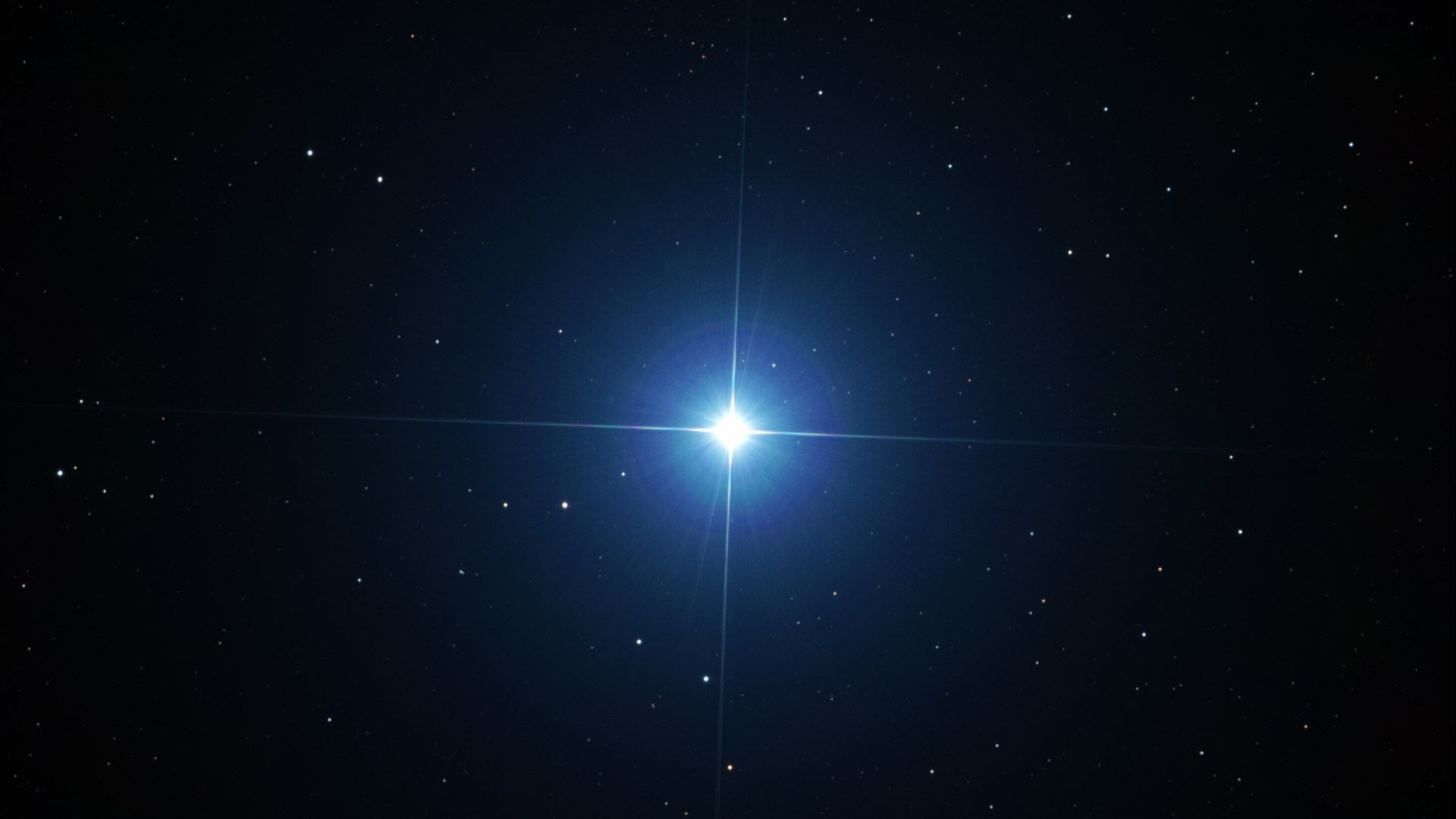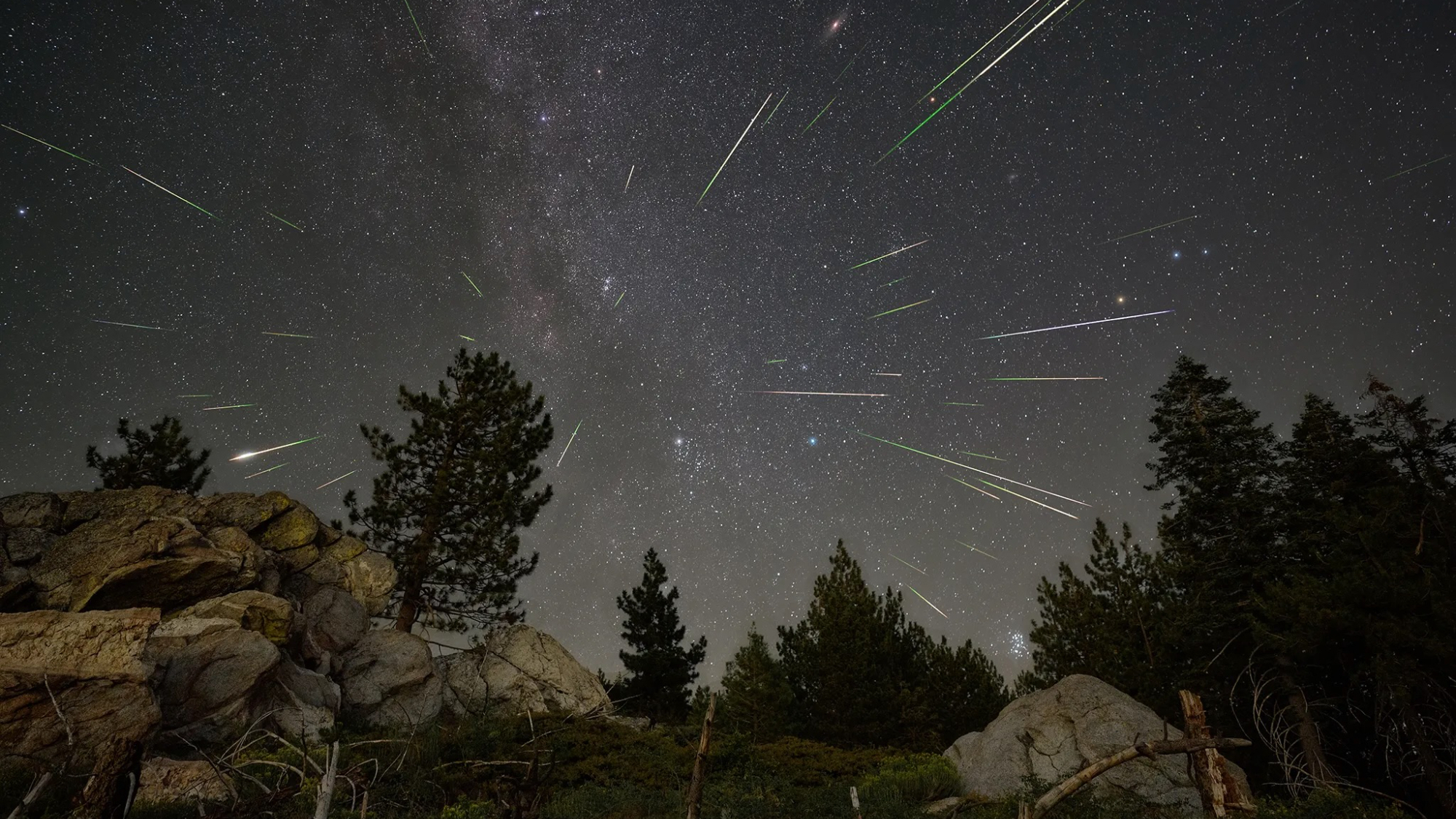When Johnny met Sally: 'The first woman in space' and a Skylab strip
Sixty years after the first woman launched into space, here is a short story about a comic strip artist, an anthropomorphic ant, an orbital workshop, a wizard and Sally Ride.
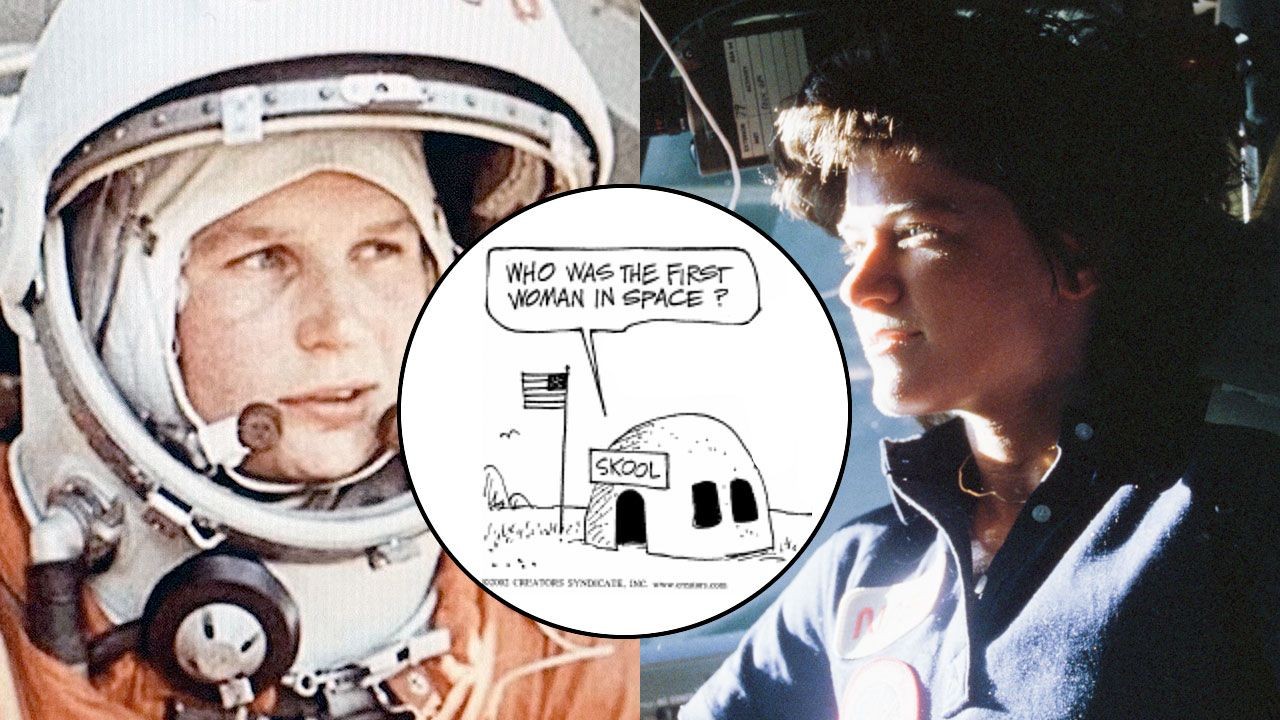
Three spaceflight anniversaries, each separated by at least a decade, have a nexus, of sorts, in a comic strip that ran in newspapers just over 20 years ago.
Today marks 60 years since the first woman launched into outer space. On June 16, 1963, Russian cosmonaut Valentina Tereshkova lifted off on the Soviet Union's three-day Vostok 6 mission. A 26-year-old amateur parachutist, "Seagull" (as was her call sign) circled Earth 48 times while coming within 3 miles (5 kilometers) of Valery Bykovsky on board Vostok 5 and collecting the first physiological data, to be compared with her male counterparts.
It took another 20 years (and two days) for the United States to catch up and fly its first female astronaut. Sunday (June 18) is the 40th anniversary of Sally Ride becoming the first American woman to launch into space. A mission specialist on space shuttle Challenger's STS-7 crew, Ride was a nationally ranked junior tennis player and physicist when she was selected with five other women to join NASA's astronaut corps.
Related: Photos of Sally Ride, the 1st American woman in space
Once in orbit, Ride controlled the robotic arm to deploy and retrieve a free-flying experiment pallet, which also captured the first on-orbit "selfie" of the space shuttle orbiter itself.
Between those two milestones was the first mission to Skylab, the United States' first space station. Next Thursday (June 22) is the 50th anniversary of the first landing from the orbital workshop, when Pete Conrad, Joe Kerwin and Paul Weitz set a then-record of 28 days living and working in space.
So what does a 2002 black-and-white comic strip have to do with these three events? It all comes down to the imagination and knowledge — or lack thereof — of Johnny Hart.
A healthy history
In 1972, the year before Skylab launched, NASA presented a public service award to Hart as creator of the comic strip "B.C." and co-creator of "The Wizard of Id."
Like illustrator Charles Schulz, who inspired Hart to start his own strip and who loaned NASA use of Snoopy from "Peanuts" to serve as a safety mascot, Hart did the same, with characters from "B.C." appearing in the Apollo 12 flight plan and on Apollo 13 press materials. Hart also drew original "B.C." and "Wizard of Id"-style characters to promote NASA's crew health program.
One such poster shows two astronauts (resembling "B.C." cavemen) standing inside their suit-up room when "Grog," a hair-covered, even more primitive human comes in, yelling only his name. Says the astronaut standing closest to Grog, "I thought secondary contacts weren't allowed in here," referencing NASA's term for family members and others who were more than once removed. "You tell him," replies the other.
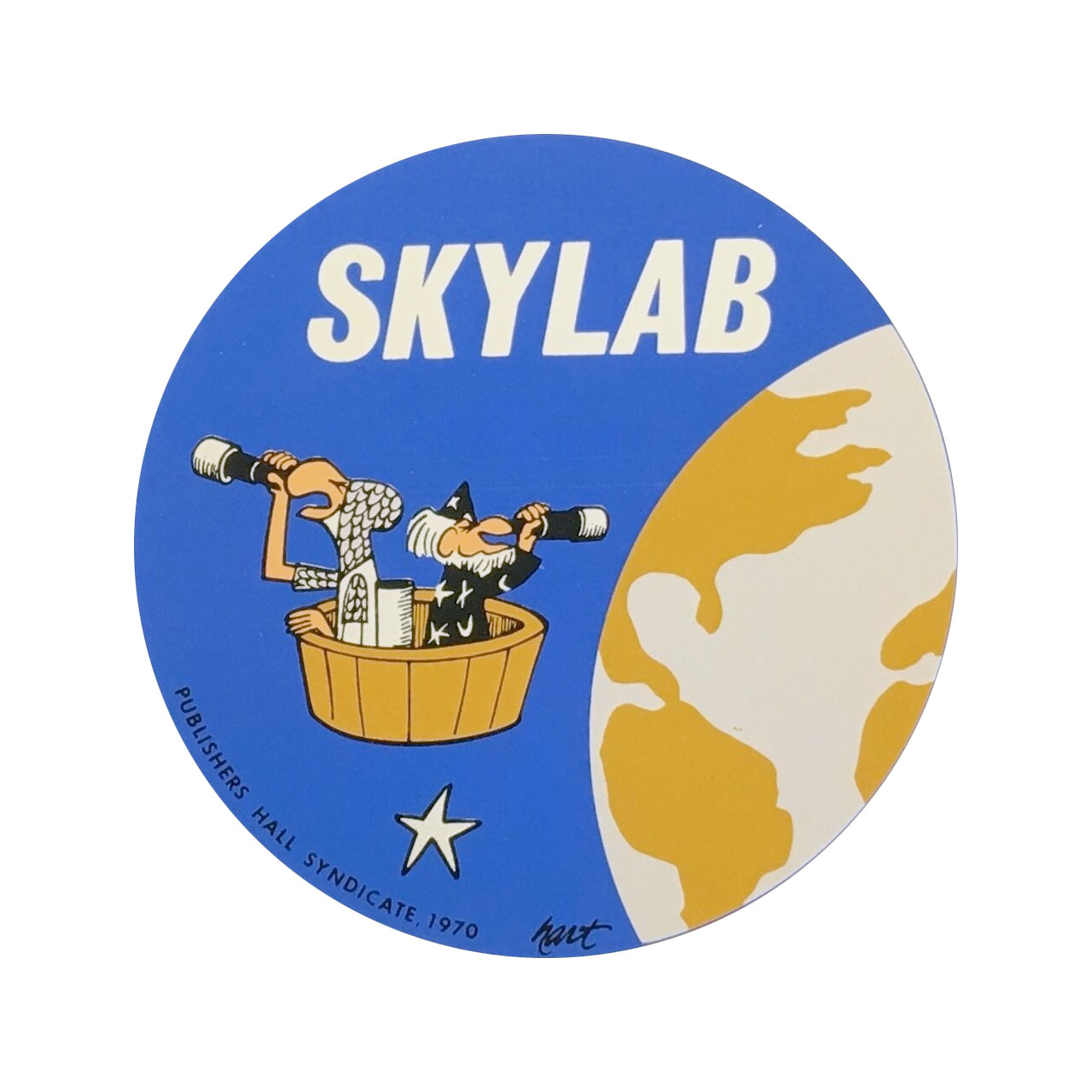
Hart's connection with NASA continued through to Skylab, with "The Wizard" from "Id," along with "Sir Rodney," a knight, being used on decals and other documents to draw attention to the work being done on the orbital workshop.
By the time Ride and the first other women astronauts arrived at NASA in 1978, Hart's characters had fallen out of use at NASA (much like Skylab would fall out of orbit the following year). In fact, it would not be until 15 years after Ride left NASA that she would connect with Johnny — an anthropomorphic ant from "B.C."
Forgotten first
The "B.C." comic strip that ran on Sept. 25, 2002, opens with an exterior scene showing a small, hut-shaped building bearing a sign reading "Skool" and an American flag flying from a flag pole. From inside the building, someone asks, "Who was the first woman in space?" to which a reply comes, "Alice Kramden!"
Moving to the second panel, the view changes to inside the hut, revealing that it is a school for ants and the original questioner had been Johnny's teacher. "Wrong Johnny, it was Sally Ride!"
The comic strip ends again outside of the school, with the teacher adding, "...but a heck of a guess, kid."
(For those missing the punchline, Alice Kramden, as played by actress Audrey Meadows on the 1955 sitcom "The Honeymooners,"was the wife to bus driver Ralph Kramden [Jackie Gleason], who would often threaten her with, "One these days, Alice, one of these days... Bang! Zoom! You're going to the moon!")
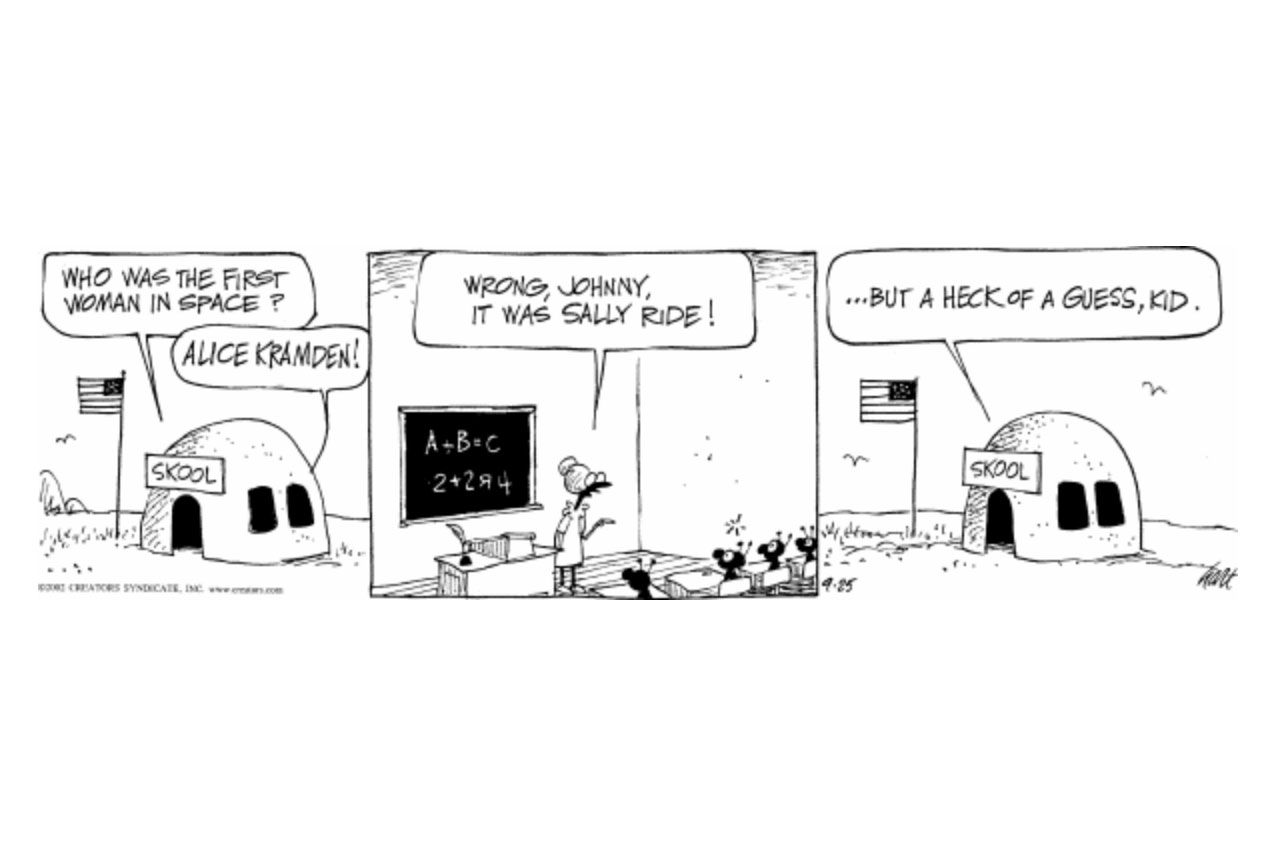
For those familiar with space history, one might have thought that Hart was setting up another joke or making some type of social commentary by giving full credit to Ride rather than Tereshkova. When reached for comment a few days after the comic strip ran, though, the cartoonist admitted that was not the case.
"Looks to me like little Johnny forgot to do his homework and so did big Johnny (Hart that is)," wrote Hart in an email to collectSPACE.com back then. "The teacher has an obvious bias against the U.S.S.R. — which no longer exists — so I guess nobody did their homework."
"But what's important is," Hart continued, "you did, and that's what keeps this ship on an even keel. Thanks for paying attention but mostly for bringing it to mine."
Hence that is how the Skylab comic strip artist, who once gave a shout-out to the first American woman in space, was reminded of who was, in fact, the real first woman in space. (Hart, 76, died of a stroke while working on his drawing table in 2007.)
Follow collectSPACE.com on Facebook and on Twitter at @collectSPACE. Copyright 2023 collectSPACE.com. All rights reserved.
Get the Space.com Newsletter
Breaking space news, the latest updates on rocket launches, skywatching events and more!
Join our Space Forums to keep talking space on the latest missions, night sky and more! And if you have a news tip, correction or comment, let us know at: community@space.com.

Robert Pearlman is a space historian, journalist and the founder and editor of collectSPACE.com, a daily news publication and community devoted to space history with a particular focus on how and where space exploration intersects with pop culture. Pearlman is also a contributing writer for Space.com and co-author of "Space Stations: The Art, Science, and Reality of Working in Space” published by Smithsonian Books in 2018.In 2009, he was inducted into the U.S. Space Camp Hall of Fame in Huntsville, Alabama. In 2021, he was honored by the American Astronautical Society with the Ordway Award for Sustained Excellence in Spaceflight History. In 2023, the National Space Club Florida Committee recognized Pearlman with the Kolcum News and Communications Award for excellence in telling the space story along the Space Coast and throughout the world.









